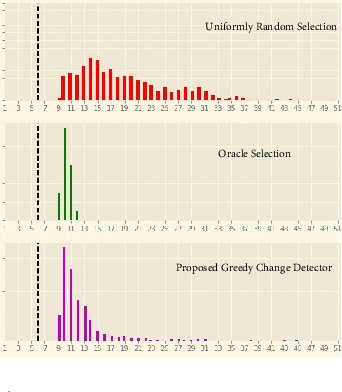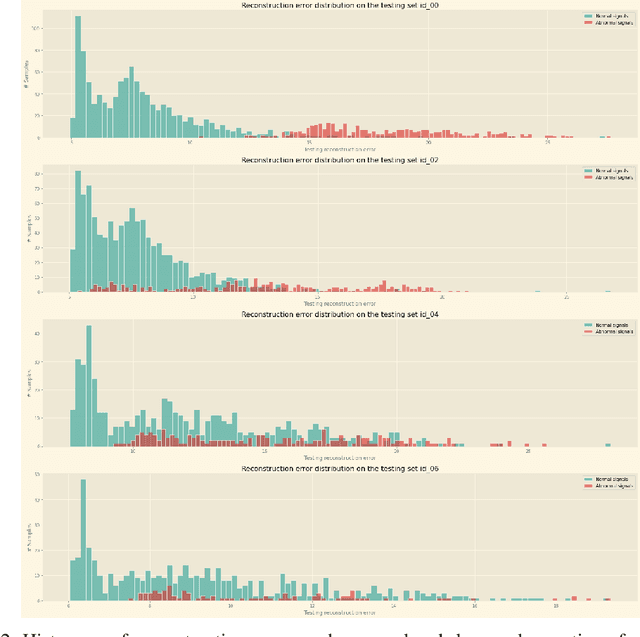Bandit Quickest Changepoint Detection
Paper and Code
Jul 22, 2021



Detecting abrupt changes in temporal behavior patterns is of interest in many industrial and security applications. Abrupt changes are often local and observable primarily through a well-aligned sensing action (e.g., a camera with a narrow field-of-view). Due to resource constraints, continuous monitoring of all of the sensors is impractical. We propose the bandit quickest changepoint detection framework as a means of balancing sensing cost with detection delay. In this framework, sensing actions (or sensors) are sequentially chosen, and only measurements corresponding to chosen actions are observed. We derive an information-theoretic lower bound on the detection delay for a general class of finitely parameterized probability distributions. We then propose a computationally efficient online sensing scheme, which seamlessly balances the need for exploration of different sensing options with exploitation of querying informative actions. We derive expected delay bounds for the proposed scheme and show that these bounds match our information-theoretic lower bounds at low false alarm rates, establishing optimality of the proposed method. We then perform a number of experiments on synthetic and real datasets demonstrating the efficacy of our proposed method.
 Add to Chrome
Add to Chrome Add to Firefox
Add to Firefox Add to Edge
Add to Edge